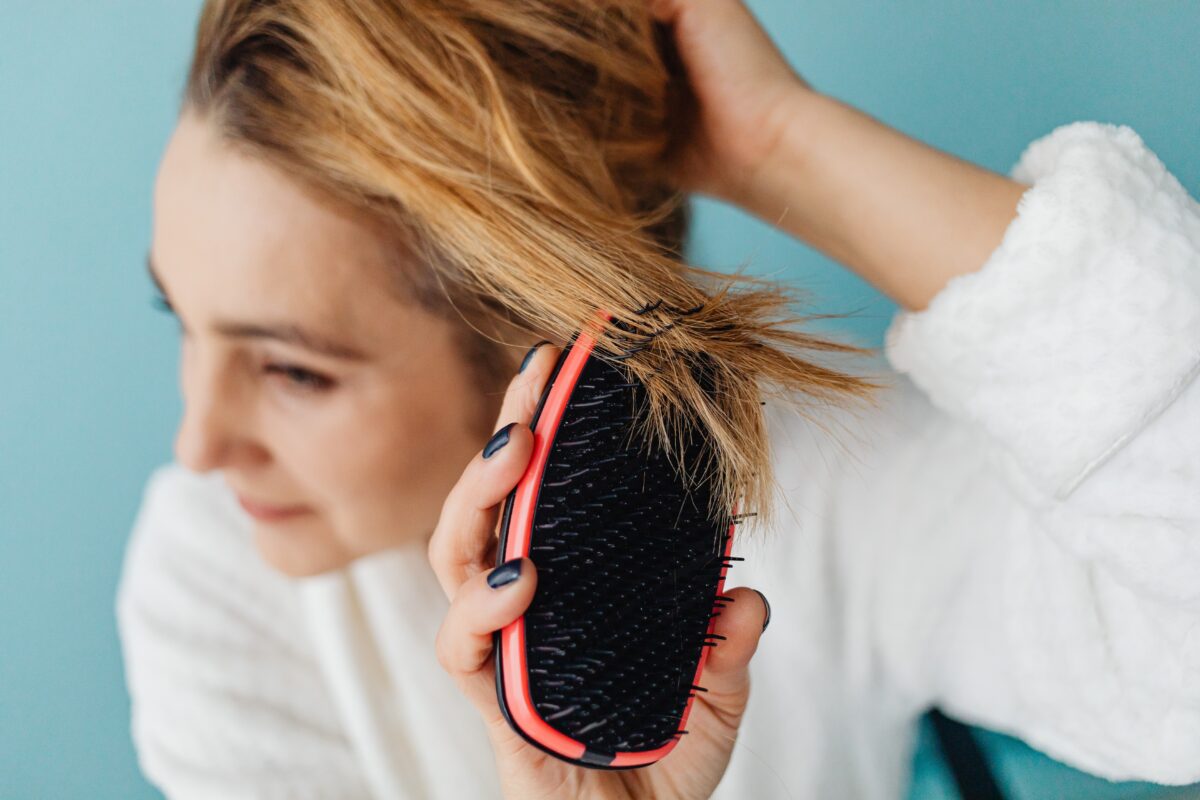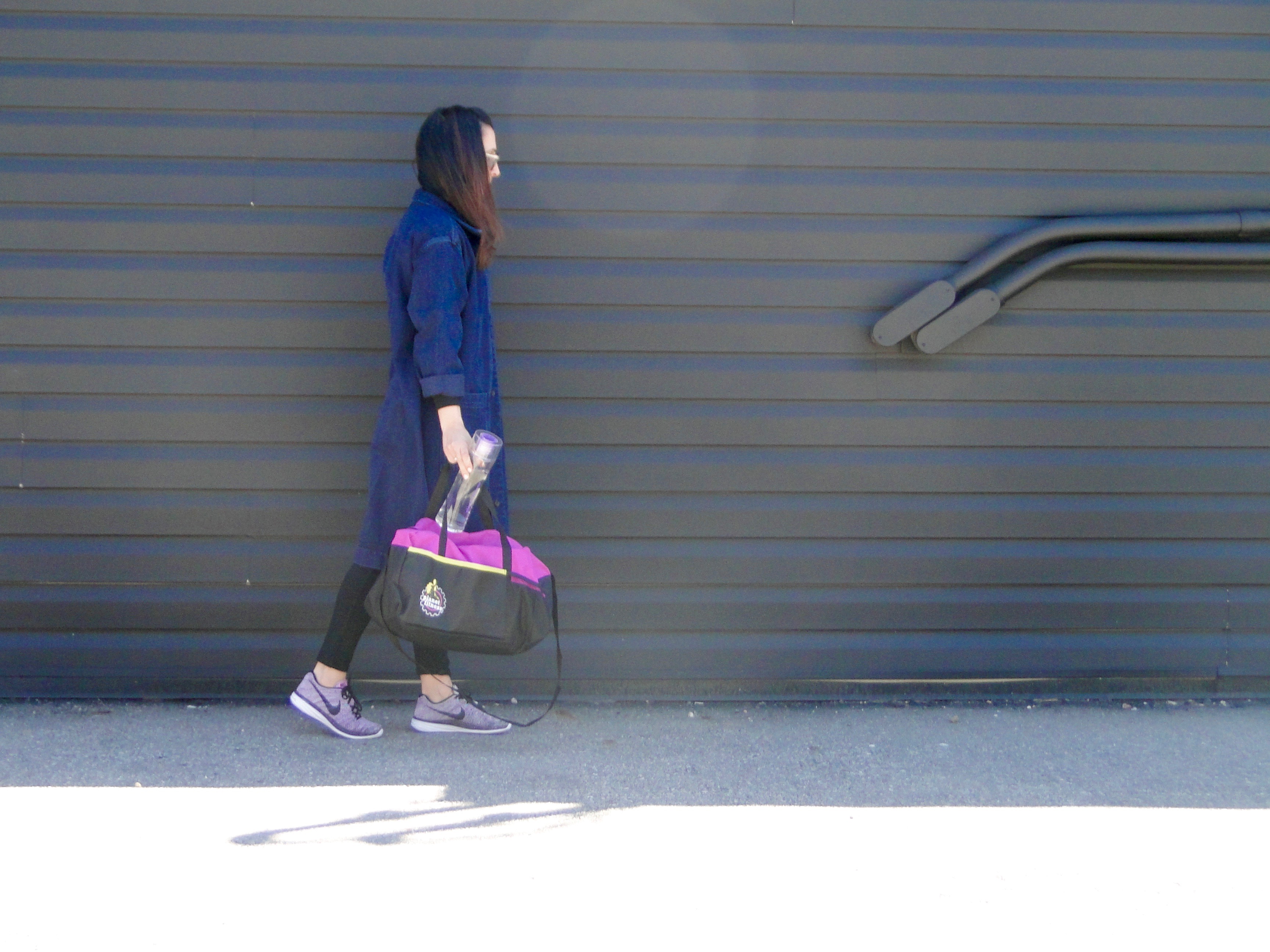Every time you brush your hair, you notice long strands falling out. In fact, you see hair fall out of your head all the time. It’s something that causes anxiety in a lot of women, but is there anything to worry about?
The simple truth is that everyone loses hair – it is a natural part of our growth cycle. For the most part, there is absolutely no need to worry. However, there can be instances when you are losing more hair than expected. In this instance, you might begin to worry, but there are still things you can do to combat the situation.
If you keep on reading, you’ll see some explanations for why your hair keeps falling out and when it is time to worry. Alongside this, you’ll get some really easy solutions to help you deal with excessive female hair loss.
Why does hair fall out?
By design, your hair will naturally fall out of your head. We have so many hairs on our heads, and they all go through specific growth cycles. They start off small and blossom into long hairs before falling out – only to be replaced by other hairs. It’s completely normal and explains why you might see hair on your hairbrush or in your hands.
Most experts agree that losing between 50-150 hairs a day is nothing to worry about at all. Already, this might be enough to put some of your worries at rest!
When should hair loss worry you?
Generally, there’s no reason to be worried about your hair falling out. Especially if it falls out but you see no differences in the thickness or health of your hair. Here, it’s simply a case of hair naturally falling out as the growth cycle comes to an end.
Having said that, you might be concerned if any of the following starts happening:
- More hair is falling out than usual
- You are starting to see thinning or bald patches on your head
- Hair is falling out rapidly
In these instances, there is a chance that something else is causing hair loss. In which case, you still shouldn’t panic, but you should open your mind to considering different treatment options.
What can cause excessive hair loss?
To be honest, an absurd number of things can make you lose your hair. The good news is that most hair loss is temporary and can be reverted if you tackle the problem. Some of the most common reasons women lose their hair include:
- Certain hairstyles – if you have really tight hairstyles that pull your hair at the scalp, this can cause hair loss. You are pulling the follicles too tightly, leading to damage, which causes them to fall out.
- Medication – some medication will also cause hair loss while you are on it. For instance, birth control pills can cause hair loss because of how drastically they change your hormone levels. Chemotherapy and other cancer treatments can also make you lose your hair.
- Stress – if you are under a lot of stress, there is a high chance you will experience hair loss. In fact, there are three different types of hair loss associated with stress.
- A lack of nutrients – women with certain nutritional deficiencies will often be prone to hair loss. Generally, a lack of B12 in your diet is linked to thinning hair and excessive hair loss, but other deficiencies can also be at fault, such as vitamin D, zinc, and selenium.
- Menopause – if you are approaching or going through menopause, the extreme hormonal fluctuations can lead to more hair falling out than usual. This can continue after because your estrogen levels drop quite dramatically.
- Genetics – some women are pre-disposed to losing their hair because female pattern baldness runs in their family. You can expect to see the signs of this as you approach your middle ages.

How do you combat hair loss?
With the possible exception of the last two points, all of these things will cause temporary hair loss. This means that it will easily be reverted if you do one simple thing; find the cause and stop it from doing more damage.
In essence, this means that treatments for female hair loss are to:
- Wear your hair in styles that don’t pull too tightly on the follicles
- Check your medication and consider coming off it if it is causing your hair loss and you don’t need to be on it
- Lower your stress levels and try to relax more
- Check your nutrient balance with a test at your doctor’s surgery to see if you have any deficiencies that cause hair loss. If you do, take supplements or improve your diet to correct this
Alongside this, there are some other treatments that can either tackle more permanent hair loss or provide general assistance to keep your hair and scalp healthy:
- Avoid heat treatments that burn your hair follicles and cause them to break and fall out easily
- Regularly get your hair washed and cleaned at a salon
- Use shampoo and conditioner designed to cleanse your scalp and promote hair growth
- Consider using a laser hair growth cap to stimulate your hair follicles and encourage them to activate, reversing the signs of permanent hair loss
- Think about getting a hair transplant if you suffer from female pattern baldness
All of these ideas will help you prevent or tackle hair loss if it becomes too excessive. But, what should you do if your hair is already healthy? Are there any preventative measures you can take to ensure your hair doesn’t fall victim to any of these problems?
Well, aside from what we’ve already discussed, the main thing is to just look after your hair. Stop using chemicals in it, stop being rough with it, and start taking better care of it.
Remember, hair loss is normal and you can lose up to 150 hairs from your head every day. It is normally nothing to worry about at all. If you notice that you’re losing more hair than usual and it is starting to thin, you can take action to correct this. Most hair loss is reversible, and thanks to modern science you can even revert permanent hair loss these days. So, the overall moral of the story is that you shouldn’t be worried about hair loss!







